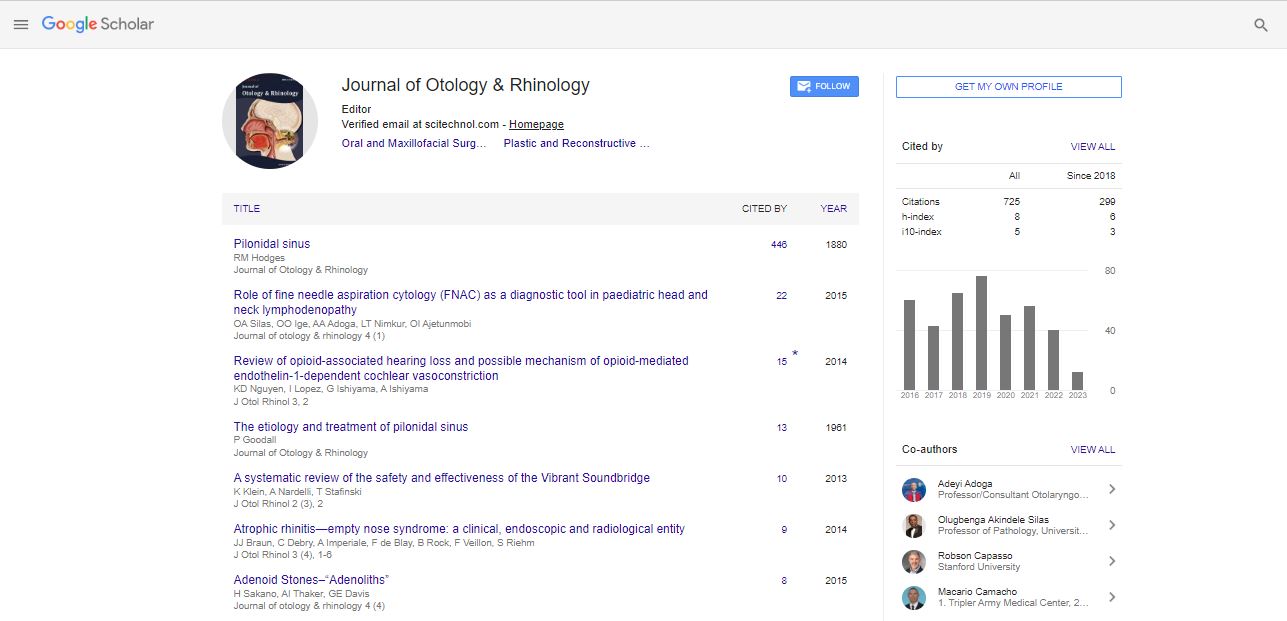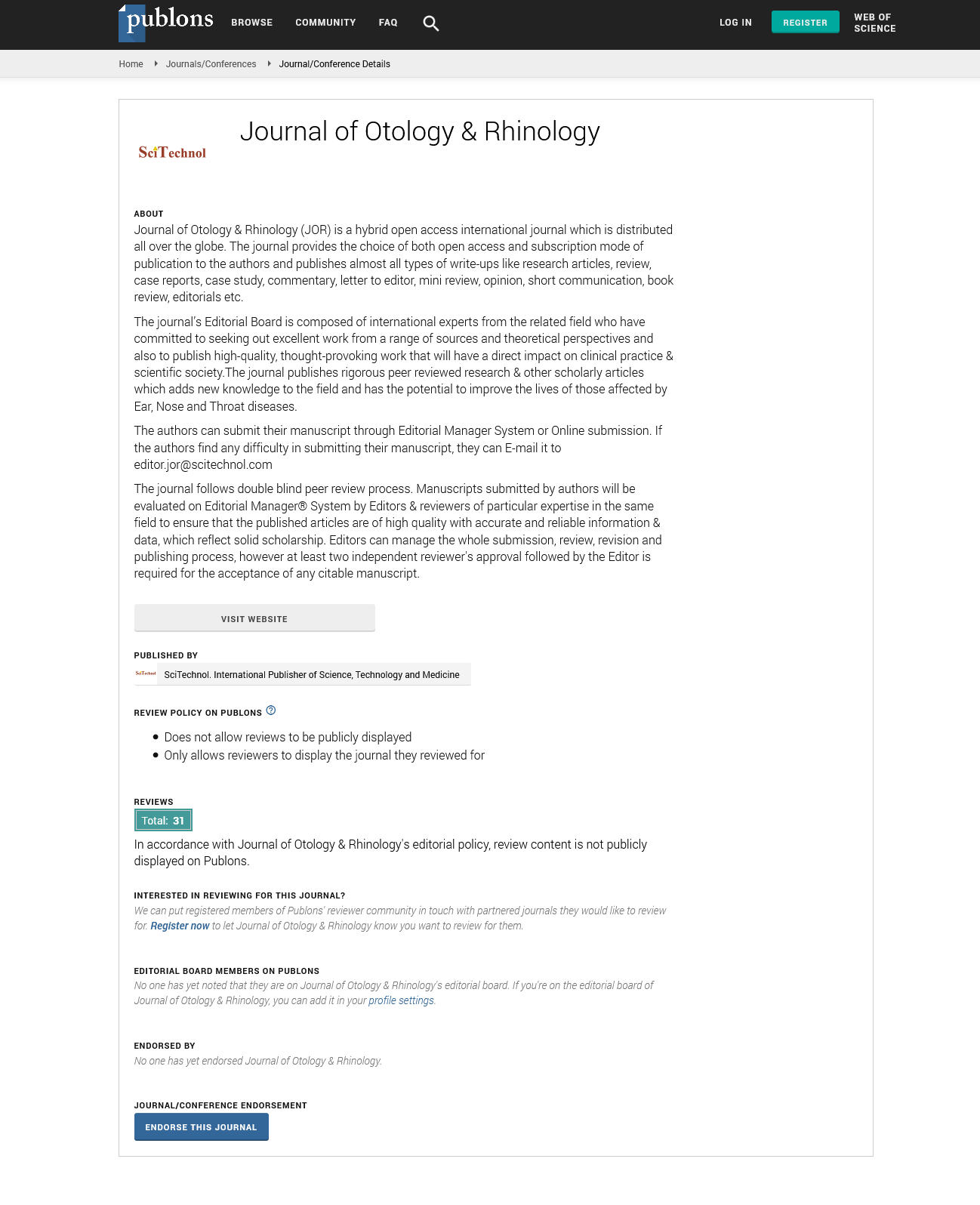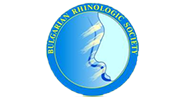Editorial, J Otolaryngol Rhinol Vol: 10 Issue: 7
Speech Language Pathology for Patients
Yang Liu*
Department of Otolaryngology, PLA Navy General Hospital, Beijing, China
*Corresponding author: Liu Y. Hinson, Department of Otolaryngology, PLA Navy General Hospital, Beijing, China; E-mail: yang.l@sa.com
Received date: July 2, 2021; Accepted date: July 19, 2021; Published date: July 26, 2021
Abstract
Speech language pathology (or discourse and language pathology) is a field of aptitude rehearsed by a clinician known as a discourse language pathologist (SLP) or a discourse and language advisor, both of whom might be known by the abbreviated portrayal, language teacher. Discourse language pathology is considered a "related wellbeing calling" or "united wellbeing calling" alongside audiology, optometry, word related treatment, recovery brain research, active recuperation, conduct investigation and others.
Keywords: Voice, Familiarity, Audiology
Introduction
Speech language pathology (or discourse and language pathology) is a field of aptitude rehearsed by a clinician known as a discourse language pathologist (SLP) or a discourse and language advisor, both of whom might be known by the abbreviated portrayal, language teacher. Discourse language pathology is considered a "related wellbeing calling" or "united wellbeing calling" alongside audiology, optometry, word related treatment, recovery brain research, active recuperation, conduct investigation and others. SLPs have practical experience in the assessment, conclusion, and treatment of correspondence issues (discourse and language hindrances), psychological correspondence issues, voice problems, and gulping issues. SLPs likewise assume a significant part in the finding and treatment of mental imbalance range problem (frequently in a group with pediatricians and clinicians). Discourse language pathologists (SLPs) give a wide scope of administrations, fundamentally on an individual premise, yet additionally as help for people, families, support gatherings, and giving data to the overall population. SLPs work to forestall, evaluate, analyze, and treat discourse, language, social correspondence, intellectual correspondence, voice, familiarity, and gulping issues in kids and grown-ups. Discourse administrations start with introductory evaluating for correspondence and gulping problems and proceed with appraisal and finding, conference for the arrangement of guidance in regards to the executives, mediation, and treatment, and giving advising and other subsequent administrations for these issues. Administrations are given in the accompanying regions: • Cognitive parts of correspondence (e.g., consideration, memory, critical thinking, leader capacities). • Speech (phonation, enunciation, familiarity, reverberation, and voice including aeromechanical segments of breath); • Language (phonology, morphology, punctuation, semantics, and realistic/social parts of correspondence) remembering cognizance and articulation for oral, composed, realistic, and manual modalities; language preparing; preliteracy and language-based proficiency abilities, phonological mindfulness. Discourse, language, and gulping issues result from an assortment of causes, like a stroke, cerebrum injury, hearing misfortune, formative postponement, a congenital fissure, cerebral paralysis, or intense subject matters. Multi-discipline cooperation SLPs work together with other medical care experts, frequently filling in as a feature of a multidisciplinary group. They can give data and references to audiologists, doctors, dental specialists, attendants, nurture experts, word related advisors, restoration clinicians, dietitians, instructors, conduct specialists (applied conduct examination) and guardians as directed by the individual customer's requirements. For instance, the treatment for patients with congenital fissure and sense of taste regularly requires multidisciplinary cooperation. Discourse language pathologists can be extremely valuable to assist with settling discourse issues related with congenital fissure and sense of taste. Examination has demonstrated that youngsters who get early language intercession are more averse to create compensatory mistake designs sometime down the road, despite the fact that language instruction results are typically better when careful treatment is performed before. Another space of cooperation identifies with hear-able handling issues, where SLPs can work together in evaluations and give mediation where there is proof of discourse, language, or potentially other psychological correspondence problems. Working conditions SLPs work in an assortment of clinical and instructive settings. SLPs work out in the open and private clinics, private practices, gifted nursing offices (SNFs), long haul intense consideration (LTAC) offices, hospice, and home medical care. SLPs may likewise function as a component of the help structure in the instruction framework, working in both public and non-public schools, schools, and colleges. Some SLPs additionally work in local area wellbeing, offering types of assistance at jails and youthful guilty parties' foundations or giving master declaration in material legal disputes. Following the American Speech–Language–Hearing Association's 2005 endorsement of the conveyance of discourse/language administrations by means of video gathering or telepractice, SLPs in the United States have started to utilize this assistance model.
 Spanish
Spanish  Chinese
Chinese  Russian
Russian  German
German  French
French  Japanese
Japanese  Portuguese
Portuguese  Hindi
Hindi 


